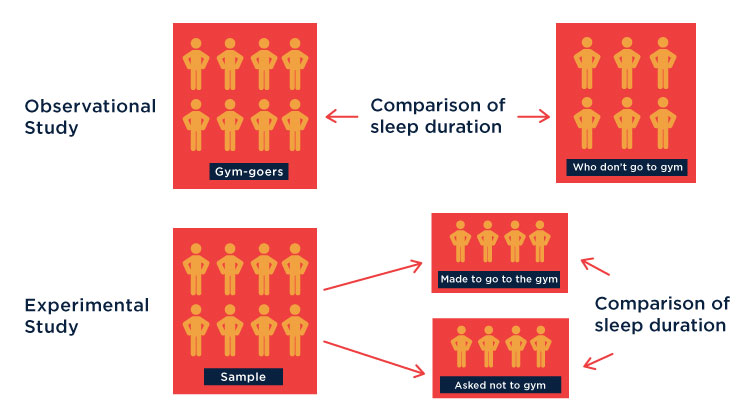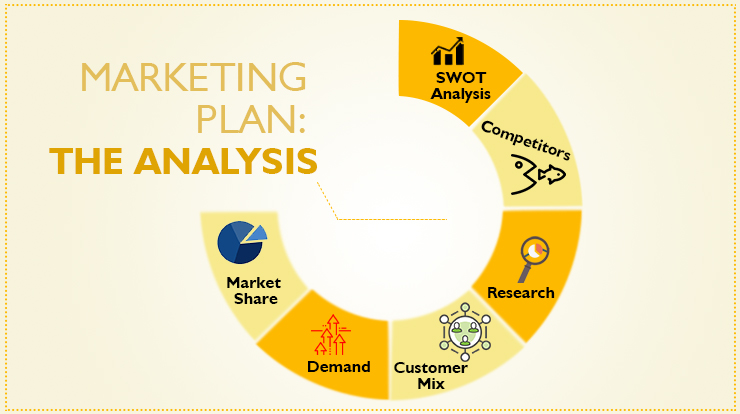
This first article in the Rock your Internship series aims at giving a perspective to students and professionals looking to do a market research study at their organizations. Which types of market research study you would do for your project depends purely upon the inferences you would want to draw from the study. Observational and experimental research studies are discussed.
Corporations are on the lookout to expand and diversify in terms of new business, new product lines or new geographies. Any such business decision is backed up by lots of data that there is or is required to be collected. It is common for a corporation to task its interns or management trainees with the job of analyzing this data and conducting a conclusive market research. Considering some redundant curriculums across institutes it’s debatable that an intern or a recent graduate would be proficient with the latest analysis tools. However, what makes him ideal for an analysis like this is his fresh perspective of looking at businesses and, obviously, the data.
To be able to deliver a quality market research it is important to know the types of market research you could perform. A thorough knowledge of what each type of market research is and what kind of inferences you can derive from them will help you make the correct decision while designing your market research campaign for your project.
At two broad levels, you could see types of market research as:
- Observational Research Study
- Experimental Research Study
I shall discuss what each type of research study involves and what kind of inferences can be drawn from that particular study. Eventually, I will further elaborate on how does each type of sampling determine the output of your result.
Observational Market Research
An observational market research study is, as the name suggests, based on only observing the situation and analyzing it. For example, your research question could be to understand the sleep duration of gym goers as opposed to that of non-gym-goers. As a part of the observational market research, you first find out the people who hit the gym and those who don’t. Here, the group of those who don’t go to the gym becomes your control group. A control group is one with which you compare the results of the other group. You enquire/observe and record their sleeping duration and compare it with the same of the control group. Meaningful insights and inferences are derived from this comparison.
Experimental Market Research
The word ‘experimental’ or rather ‘experiments’ surely rings a bell. At least to me, it gives me visualizations of a scientist performing a study of his drug on a mouse. The mouse is kept in a watch-box for observation. The drug is fed to or injected into the mouse and then the medical and behavioral parameters of the mouse are observed. Here, you would then bring in another mouse that hasn’t be administered the drug dose to compare the result with the drugged mouse.
As an analyst, an experimental market research study gives you a similar kind of liberty. Extending the example of the study we are conducting of the sleep duration of the gym-goers and non-gym-goers. Another way we could conduct that study is to simply select, say, 100 people. Put half of these fixed to a regular gym workout schedule and ensure that the other half abstain from any kind of gym activity. You set up the duration of the experiment to, say, 8 weeks and then compare the sleep duration of both the groups. This is what entails an experimental market research study.
Differences between the types of market research study
On the looks of it, both the types of market research study differ in terms of the method in which the data arises. In an observational study, you as a researcher are not interfering with the source of the data. The intention is to merely observe the data and not to tinker with how the data arises. For example, you are simply observing two sets of groups, one, who are hitting the gym and the others who aren’t. You are not controlling the gym workout or for that matter any aspect of their lifestyle in any which way.

As I said already, both the types of market research studies also differ in terms of the scope of the inferences that you can draw from them. In an observational market research study, your inferences are limited to establishing the correlation between the two events. That is, only the strength of the correlation of the gymming and its effect on sleep duration (whether long or short) could be assessed. This fine to the extent of concluding that gym goers do tend to have a longer duration of sleep. But nothing can be said conclusively regarding whether gymming is the cause of the longer duration of sleep that has been observed. There could be various other factors which could be the reason why those people have a longer duration of sleep.
Crisply put, in an observational market research, only correlation can be inferred and not causation.
In the experimental market research study, there is clearly more effort on your part. You are setting up the stage to perform your research in controlled circumstances. You are selecting the people to be part of the experiment and then randomly dividing the people into two groups. While one group is assigned a particular gym routine, the other group is purposely kept away from any form of gym exercise. Here, you have the variables in your hand to control. So you could go to the extent of controlling their workout plans, their diet, the time of day when they gym, the distance of the gym from their house, their mode of commute to the gym and what not. And therefore, a more conclusive inference of causation can be made. You can conclude if gymming is or is not the sole reason behind their increased hours of sleep if that is what the results come out to be.
Hence, an experimental market research study allows you to prove causation between two events.
Experimental Research Study better than Observational Research Study?
Reiterating the fact again that which types of market research study you use in your project needs to be looked at from the other end of the funnel. That is, what kind of results would you want to synthesize from it. This, in fact, depends on the problem you are trying to solve. While experimental research study gives you insights into the causation relationship between the two events, it might not always be the need of the problem you are trying to solve.
Consider yourself working at a fashion house with a front end store from where customers purchase the clothes. You get a tip from a salesperson that the people who buy shirts are likely to buy ties from the store as well. You get hold of the transaction data of all the transactions that happened in the last 5 years. As the analyst, you would perform an observational study to infer (maybe) that indeed there is a positive correlation which suggests that people who buy shirts also tend to buy ties from the store. In this case, you are merely, observing the transaction data i.e. the buying behavior of those who purchase the shirts and those who don’t. And, in this case, it shall suffice to conclude that salespersons should push the shirt buying customers to go for ties as there is a strong chance that they would.

‘Setting up the stage’ to conduct an experimental research study was not even a requirement here. This, however, is the rudimentary form of analysis written here only for the case of explanation. Your job as a market researcher or analyst would be to crack much more unobvious patterns. For your projects, you must get in touch with your project mentors to understand what scope of research does the company want and how much would it support you.
I discussed that you select people for the experimental market research study. This, in the correct parlance, is called sampling. In the next article of the series, I shall discuss what is sampling, what are the various ways of sampling and how even the type of sampling determines the nature of the result.






